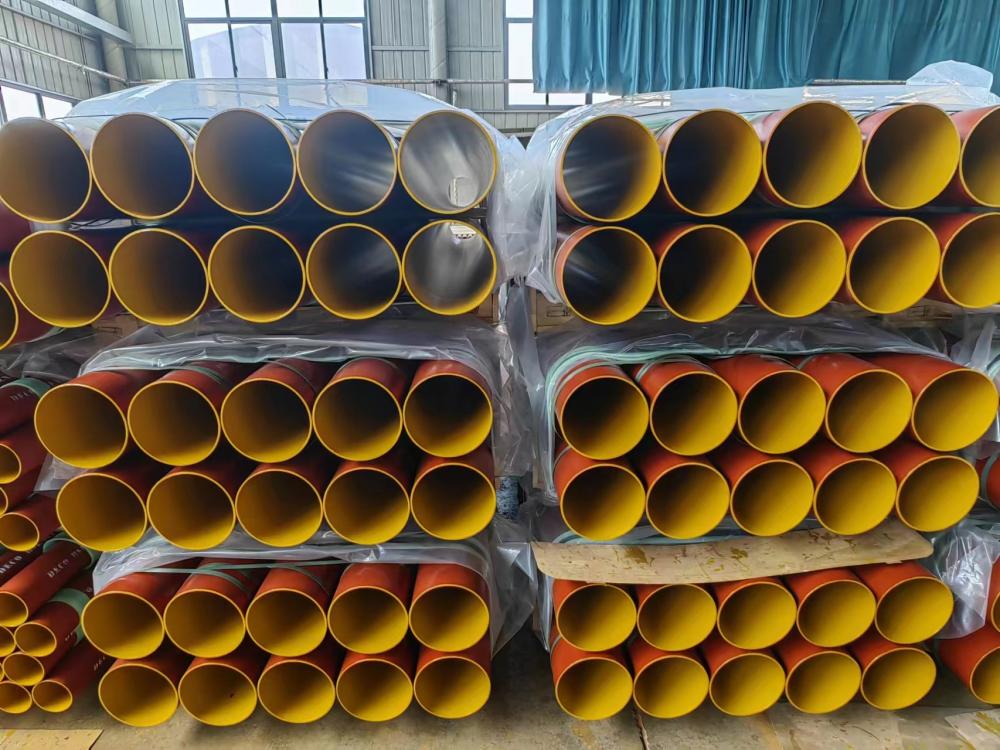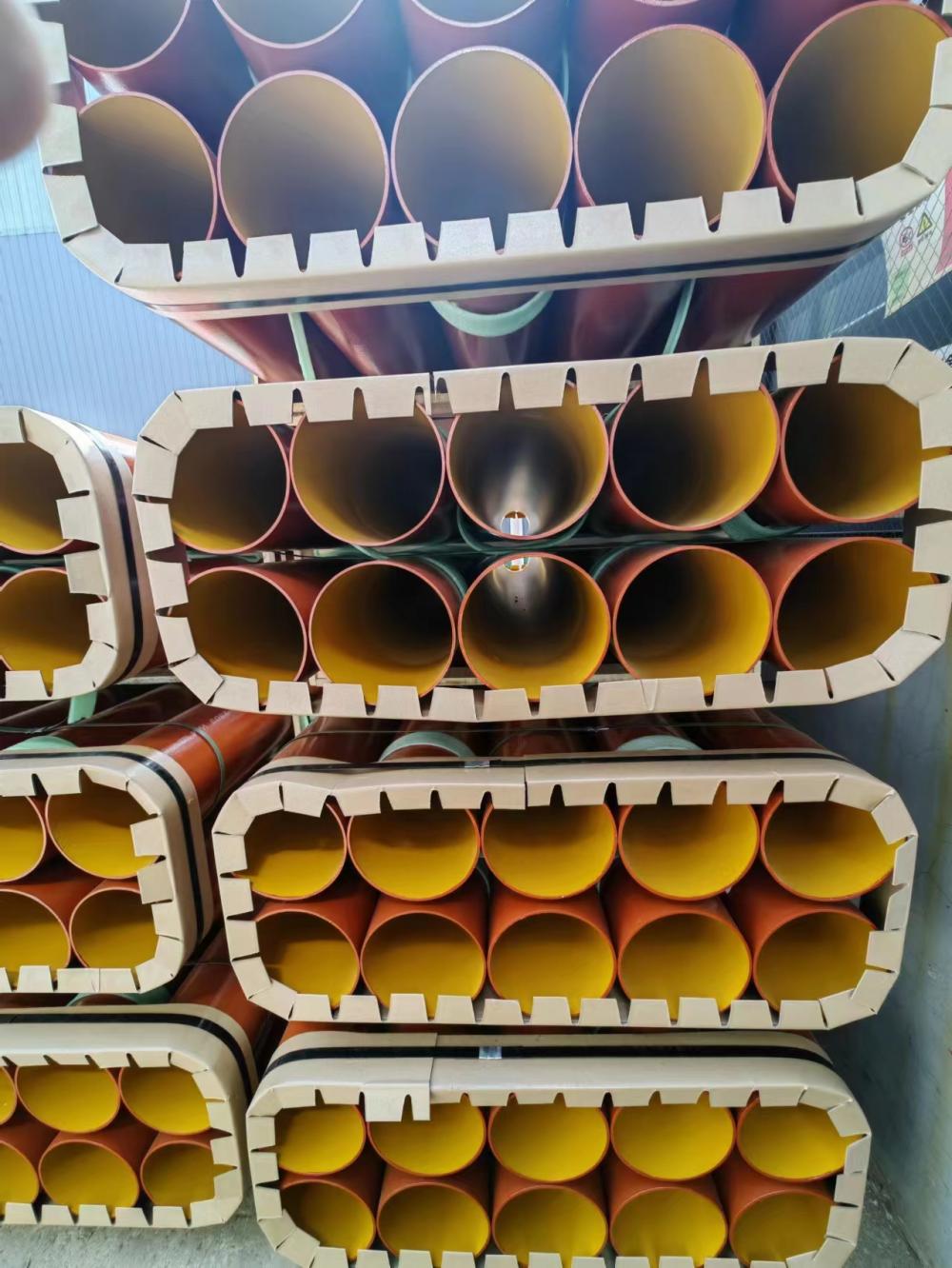
Privacy statement: Your privacy is very important to Us. Our company promises not to disclose your personal information to any external company with out your explicit permission.
The Introduction of Cast Iron Pipes
Cast iron pipes are a type of plumbing material that has been used for centuries due to its durability and strength. These pipes are made of cast iron, a material that is known for its ability to withstand high pressure and heavy loads. In this essay, we will explore the definition, characteristics, and various applications of cast iron pipes.
Definition of Cast Iron Pipes:
Cast iron pipes are made from cast iron, a type of iron-carbon alloy that contains a high percentage of carbon. This material is known for its excellent casting properties, making it ideal for the production of pipes. Cast iron pipes are manufactured by pouring molten cast iron into molds, which are then allowed to cool and solidify. The resulting pipes have a strong, dense structure that is resistant to corrosion and can withstand high pressure.

Characteristics of Cast Iron Pipes:
Durability: One of the most significant characteristics of cast iron pipes is their durability. These pipes are known for their longevity and can last for several decades with proper maintenance. Cast iron pipes are resistant to wear and tear, making them suitable for handling heavy loads and high-pressure applications. They are also less prone to damage from external factors such as temperature changes and chemical exposure.
Strength: Cast iron pipes are incredibly strong and can withstand the weight of the soil and other loads placed on them. This strength makes them suitable for use in underground applications, such as sewage and drainage systems. Cast iron pipes have high compressive strength, which allows them to support heavy loads without deforming or cracking.
Corrosion Resistance: Cast iron pipes have excellent corrosion resistance, primarily due to the formation of a protective layer on their surface. The surface of cast iron pipes oxidizes over time, forming a layer of iron oxide known as "tubercle." This tubercle acts as a barrier between the pipe material and the surrounding environment, preventing corrosion and extending the lifespan of the pipes.
Noise Reduction: Another advantage of cast iron pipes is their ability to reduce noise. The dense structure of cast iron helps dampen the sound of flowing water, reducing the noise levels in plumbing systems. This characteristic is especially useful in residential and commercial buildings where noise reduction is important for occupant comfort.
Fire Resistance: Cast iron pipes have excellent fire resistance properties. They have a high melting point and do not contribute to the spread of fire. This makes cast iron pipes an ideal choice for use in fire protection systems, as they can withstand high temperatures and provide a reliable means of water supply during emergencies.

Applications of Cast Iron Pipes:
Sewage and Drainage Systems: Cast iron pipes are commonly used in sewage and drainage systems due to their strength and durability. These pipes can handle the transportation of wastewater and solid waste, making them suitable for underground applications. Cast iron pipes are also resistant to the corrosive substances found in sewage, ensuring long-term performance.
Water Distribution Systems: Cast iron pipes have been traditionally used in water distribution systems to supply water to residential, commercial, and industrial buildings. The strength and corrosion resistance of cast iron make it an excellent choice for this application. However, in recent years, other materials such as PVC and ductile iron have gained popularity due to their lighter weight and lower installation costs.
Fire Protection Systems: Cast iron pipes are widely used in fire protection systems to provide a reliable water supply for firefighting. These pipes can withstand high temperatures and maintain their structural integrity, ensuring that water reaches the necessary areas during fire emergencies. The noise reduction properties of cast iron pipes also make them suitable for use in residential and commercial buildings where fire protection systems are installed.
In conclusion, cast iron pipes are a durable and reliable plumbing material that has been used for centuries. Their strength, corrosion resistance, and noise reduction properties make them suitable for various applications, including sewage and drainage systems, water distribution systems, and fire protection systems. While other materials have gained popularity in recent years, cast iron pipes continue to be a trusted choice for many plumbing projects.
April 14, 2024
May 07, 2024
Model NO.: 88DEG REDUCER TEE EN877 SML Technics: sand casting Certification: DIN, BS Color: rust red coating 1: baked epoxy resin paints coating 2: epoxy resin powder electrostatic spraying coating...
1, today's pig iron market summary 24 national pig iron prices are mainly stable adjustment, turnover is general. Among them, the average price of steelmaking pig iron L8-L10 in 10 cities is 3320...
Process, metallurgical factors: the main cooling rate, liquid iron overheating treatment, inoculation treatment, charge characteristics, etc. (1) On the effect of cooling rate Cast iron is a kind of...
Email to this supplier
April 14, 2024
May 07, 2024

Privacy statement: Your privacy is very important to Us. Our company promises not to disclose your personal information to any external company with out your explicit permission.

Fill in more information so that we can get in touch with you faster
Privacy statement: Your privacy is very important to Us. Our company promises not to disclose your personal information to any external company with out your explicit permission.